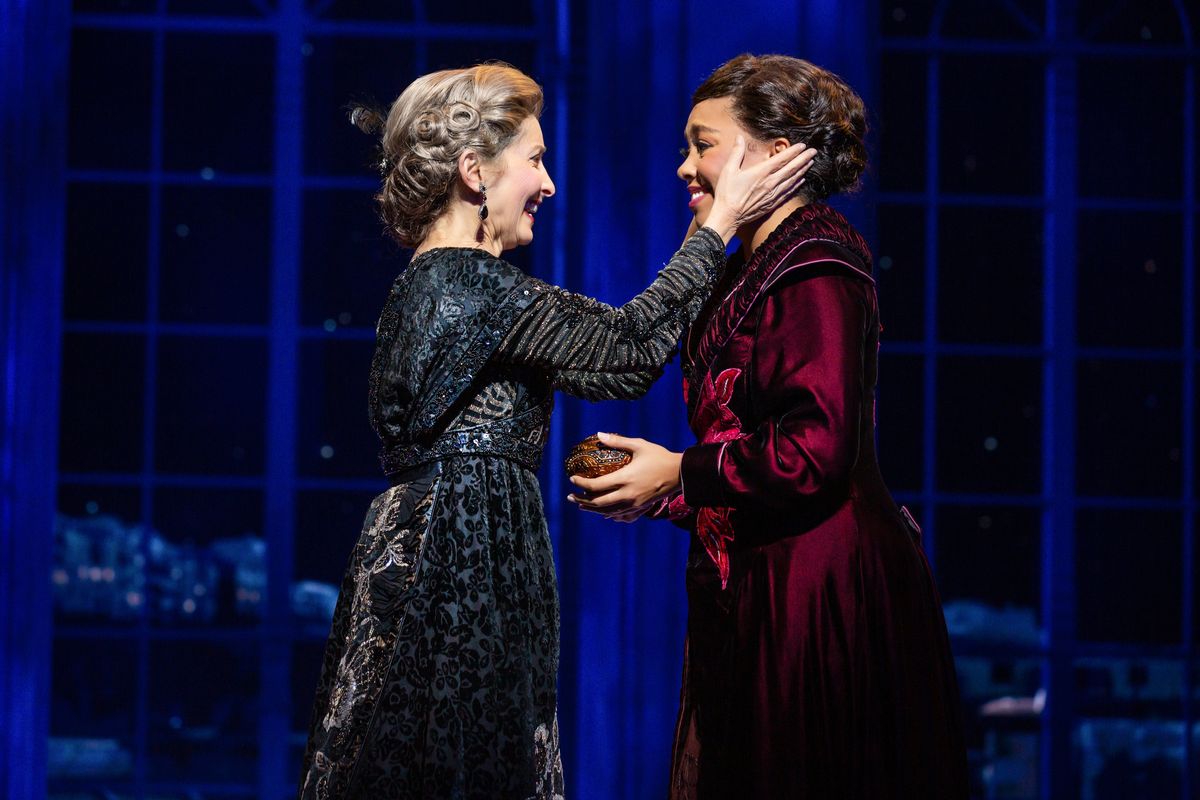Royal legend lives on: Russia’s lost princess is brought to life onstage in ‘Anastasia’

The story of Anastasia Romanov, the Russian grand duchess who miraculously survived the night in 1918 when Bolsheviks murdered the entire Russian royal family, has been the stuff of legend for a century.
It’s also pure myth. DNA evidence confirmed that 17-year-old Anastasia died alongside her parents, Tsar Nicholas II and Tsarina Alexandra, her sisters and brother, executed by revolutionaries in the town of Yekaterinburg.
But in the nine decades between that fateful night and the conclusive proof of her death, the idea of a lost Russian princess wandering Europe captured the imagination. Women pretended to be her. Films, books and TV shows all speculated about who she could be and what her life would be like.
The musical “Anastasia,” which arrives in Spokane on Tuesday as part of the STCU Best of Broadway series, takes its cue from one of those films, the 1995 Warner Bros. animated film “Anastasia,” featuring voice performances by Meg Ryan and John Cusack.
“Anastasia,” which opened on Broadway in April 2017 and closed two years later, has an impressive pedigree. Composer Stephen Flaherty and lyricist Lynn Ahrens, who won the Tony Award for best original score for “Ragtime,” helped adapt the film for the stage, along with four-time Tony-winning playwright Terrence McNally (“Love! Valour! Compassion!,” “Kiss of the Spider Woman,” “Ragtime” and “Master Class”), who wrote the book.
The stage production takes its major beats from the animated film – a young amnesiac named Anya who looks like the Grand Duchess Anastasia is befriended by a couple of con men who take her to Paris, where the two men hope the Dowager Empress Marie Feodorovna will recognize Anya as her granddaughter and reward them.
Six of Flaherty and Ahern’s songs from the film, including the Oscar-nominated “Journey to the Past,” made the transition to Broadway. Sam McLellan, who plays one of the con men, Dmitry, said the show has a lot to offer those in the audience who have fond memories of seeing the animated film.
“Something that’s really fortunate for us as a production is that it has that built-in audience. There is a group of people who are familiar with the story,” McLellan said. “But it’s different enough that it keeps people coming back. If you’re familiar with the cartoon and you come see the show, you’ll notice that some things are different. The story is different. Some of the characters are different. It’s fun for people to see the story interpreted in a slightly different way.”
The show is a 20th century Cinderella story, and that fantasy aspect is what also draws audiences. And unlike that of the real Anastasia, the musical’s Anastasia, played by Kyla Stone, has a much happier fairy-tale ending.
“The story is very real, the story is very relatable, and I think why we have audiences coming back to it is … that it’s a story about hope, determination, will,” McLellan said. “Of course everybody loves a Cinderella story, a rags-to-riches sort of thing, but it has a twist to it, and I think audiences leave feeling that the most important thing was not that she discovered that she’s a princess, but that she discovers who she is.”
McLellan was first approached about playing Dmitry just as the pandemic hit. He sent in materials to the casting director and then waited. And waited. Once it became clear this summer that theatrical performances were going to return, he was hired for the job. Dmitry is not just a bad guy, and he’s more than the love interest. It’s the shading of the character that drew McLellan to the role.
“I’ve always been attracted to the type of characters who are more nuanced,” McLellan said. “It’s not easy to label them. It’s not easy to say that Dmitry is a good guy or that Dmitry is a bad guy. I like that it starts out from a place of complete selfishness. They’re taking advantage of Anya, and that’s not honorable at all. It’s interesting for the audience to see someone change over the course of a story.
“The audience comes to learn him as he learns himself.”
This story has been updated to correct the spelling of Lynn Ahrens’ name.